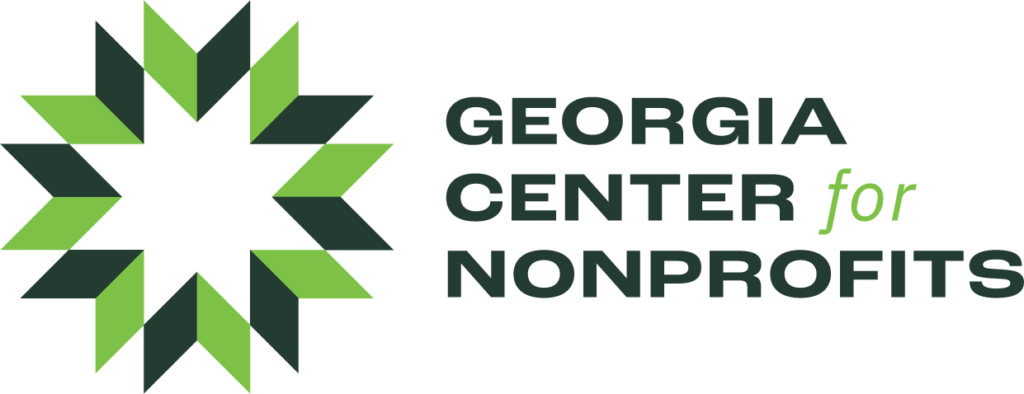Contemporary society expects accountability from government and business related to matters of equity, and the nonprofit sector is no exception: We bear the same responsibility in helping to create a just society – if not more so.
That’s why we’ve organized this resource hub as a starting point, meant to help nonprofit leaders begin building their capacity for equity work within the organization; please know that it is not our intention to oversimplify DEI work or the issues necessitating it. Rather, we hope that this hub will empower you to achieve greater levels of equity and inclusion by making the exploration of initial steps less intimidating.

To that end, we have curated a number of resources and organized them into several broad categories that we believe will support actionable organizational strategies. A nonprofit has many facets to consider when starting DEI work, including the board, staffing, programs, and how the organization connects to the greater community. Below, you’ll find links to guides, examples, and tools from some of the sector’s thought leaders in the DEI space, as well as various consulting firms and issue leaders, addressing the fundamental areas of nonprofit practice to take action around.
Which topic would you like to learn more about?
Groundwork
Organizations can avoid missteps before jumping into tactics by creating a basis for common understanding. Consider, for example, the following questions:
- Do we have a shared vocabulary?
- How do we define diversity, inclusion, racial equity, and other terms?
- What is implicit bias?
- Have we discussed structural racism, microaggression, dominate culture, and privilege?
- Are we welcoming as a board, staff, and organization? How would we know, and how can we prevent blind spots?
Leaders should be mindful that process matters; if handled improperly – without the proper groundwork established – DEI work could backfire, triggering setbacks in equitable practices. Therefore, it’s important to cultivate the abilities to lead conversations on topics such as unconscious biases and identity; to encourage risk-taking; to surface divergent views; and to manage conflict and emotions. Leaders should be mindful about their internal capacity to facilitate these conversations and whether they should seek external assistance to create a space where everyone can lean in and have courageous conversations.
Equity vs. Equality and Other Racial Justice Definitions
Harvard Business Review
To Avoid DEI Backlash, Focus on Changing Systems – Not People
Harvard Business Review
Understanding the Fundamentals
While diversity creates the potential for greater innovation and productivity, inclusion is what enables organizations to realize the business benefits of this potential. Equity refers to fair treatment in access, opportunity, and advancement for individuals. Work in this area includes identifying and working to eliminate barriers to fair treatment for disadvantaged groups.
Here are some resources to begin exploring fundamentals and data related to equity and inclusion.
Fundamentals
Explore this page for a broader understanding of the background, issues, and terms that underpin the importance of DEI work.
Data Resources
This page contains links to various sources for dynamic data that can be utilized in a DEI strategy or in funding proposals.
Making the Case for DEI
A successful strategic DEI plan is one that is relevant to an organization’s mission, vision, and business objectives. Whether you are advocating internally to begin planning or working through an existing plan, it’s smart to build a case for DEI work that links the investment of time, effort, and other resources to business outcomes such as retention and mission achievement.
Background
The Business Case for Racial Equity: A Strategy for Growth
W.K. Kellogg Foundation
Data Resources
GCN roundup
Assessing Your Organizaiton
Considering the vastness and complexity of the sector, an organization’s equity journey will never be formulaic. However, according to research conducted by Georgetown University, organizations can typically place themselves in one of the stages summarized in the Quick Tool linked below.
For a deeper dive into the stages, check the full Georgetown report. We’ve also provided links to two surveys that can be used to help assess your organization’s equity journey. (Consider loading questions from one or both into a free online tool like SurveyMonkey or Google Forms, which make it easy to share with staff and organize responses.)
Quick Tool: Stages for Advancing Racial Equity in Organizations
Georgetown University
Report: Advancing Racial Equity Within Nonprofit Organizations
Georgetown University
Survey: Racial Equity Research Questions
Georgetown University
Assessing Your Leaders
An important aspect of building capacity for equity work is assessing leadership’s role in creating actionable change. The self-assessment resources below are based on the COMMIT framework, which has been extensively evaluated by the University of Pennsylvania to confirm its validity, reliability, and transferability as an effective inclusion coaching framework.
The Quick Tool linked here is a helpful resource in assessing personal leadership progression, from “care” to “commitment,” in terms of leading organizational change to support greater inclusion. For more details on COMMIT, and why it’s effective, check out the full research report.
Quick Tool: The COMMIT Inclusive Behavior Framework
University of Pennsylvania
Report: Examining Workplace DEI with the COMMIT Inclusive Behavior Framework
University of Pennsylvania
Creating a Strategic DEI Plan
The resources below will help organizational leaders craft a strategic DEI Plan for your own organization.
Planning Guides
Developing and Writing a Diversity Statement
Vanderbilt University
7 Steps to Advance and Embed Race Equity
The Annie E. Casey Foundation
Building an Institutional DEI Strategic Plan
University of Michigan
Racial Equity Action Plans: A How-to Manual
Government Alliance on Race & Equity
Plan Examples
Moving Racial Equity and Inclusion from the Periphery to the Center
Nonprofit Quarterly
Action Plan Examples for Communities, Issue Areas
Racial Equity Tools
Additional planning resources
Podcast: Fighting Bias and Inequality at the Team Level
Harvard Business Review
Communications Guide
Government Alliance on Race & Equity
Article Series: The Power of Feedback
Stanford Social Innovation Review
Operationalizing DEI Plans
Below, find help for making your DEI-centered plans a reality.
Evaluating DEI Progress
As with any other initiative, your nonprofit will need to measure the progress you’re making toward your DEI goals, assess your results regularly, and make the adjustments needed to keep efforts on track. Be sure to consider the measurements you’ll be using, and how you’ll be taking them, as you develop your plans.
To Build a DEI Program that Works, You Need Metrics
Harvard Business Review
To Make Lasting Progress on DEI, Measure Outcomes
Harvard Business Review
Funding Opportunities
For general reference and updates, see Candid’s funding for racial equity page, which includes news, commentary, webinars, research, and top funders. (See also Candid’s “issue lab” page for race and policing and their dedicated site for Black male achievement funding.)
W.K. Kellogg Foundation is active in Georgia and counts “racial equity” among its 11 program areas. Learn more.
Having shifted its focus entirely to inequality, Ford Foundation has seven revamped priorities. Among them: civic engagement, racial justice, inclusive economies, youth opportunity, and free expression. Learn more.
Healthcare Georgia Foundation’s funding is directed to expand access to quality healthcare for the underserved, address health disparities, and strengthen nonprofits. Learn more.
Rooted in social justice, The Nathan Cummings Foundation maintains a focus on racial and economic justice; their climate change program also provides support for the most vulnerable. Learn more.
Proteus Fund’s RISE Together program supports work in racial justice and human rights. You can either go directly to the RISE Together page or learn more about all the issues they cover.
Bloomberg Philanthropies’ Greenwood Initiative aims to accelerate the pace of wealth accumulation for Black individuals and families via economic and social mobility. Unsolicited requests are not accepted. Learn more.
Especially active in Atlanta, The Annie E. Casey Foundation invests in racial equity through its Juvenile Justice program and (less explicitly) through its Economic Security and Community Change programs. Unsolicited requests are not accepted. Learn more.
Focusing on social justice reform and inclusive economies, Surdna Foundation is less active in Georgia than elsewhere. Learn more.
Webinars from GCN
Below, find three webinars put together by GCN to assist in the practical application of DEI work.
Building Equity from the Inside Out
Dr. Dietra Hawkins on the complex concept of “building equity,” which encompasses personal bias, small everyday leadership decisions, strategy choices, policy construction, and structural norms across entire systems.
Building Equity Leadership
Living Cities presents the case study of their incredible journey into DEI, chronicling the difference that young leaders have made and the transformational effect of an equity-centered strategy.
Tenant's Rights, Public Benefits, and Your Clients
The Georgia Legal Services Program details the tenant laws and relief opportunities for nonprofits that work with renters at risk of eviction.
